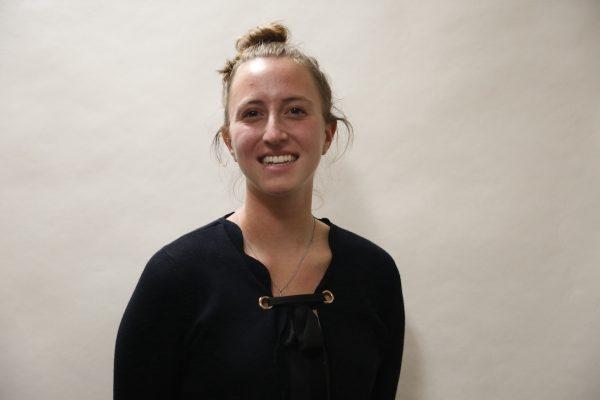The opportunities for pharmaceutical students are endless through St. Joe’s Philadelphia College of Pharmacy (College of Pharmacy), where students have the opportunity to work on leadership building, networking and career development through 18 different organizations that are often linked to national
pharmaceutical institutions.
Edward Foote, PharmD., dean of College of Pharmacy, has seen first hand how students are able to use the skills they developed through these organizations to guide them into future professional careers.
“Our goal is to make leaders of all of them, and so, in the student organizations, because we have so many, they get that experience,” Foote said. “Over and over again, I see the leaders in student organizations become the leaders in the profession. That certainly doesn’t happen overnight or not right when they graduate, but they’ve been very successful in getting great jobs.”
Vaidehi Patel ’22, PharmD. ’24, serves as the president of College of Pharmacy Student Council, which supports, funds and represents the various College of Pharmacy organizations on the University City campus. According to Patel, this leadership position has strengthened the personal and professional connections she has been able to make.
“Leading our student council meeting, getting the opportunity to connect with alumni and different professors on campus, I would say it not only allowed me to make better connections, but also built up my soft skills, like my presentation skills and communication skills,” Patel said.
All of the College of Pharmacy organizations strengthen networking and leadership skills in students, but some are unique because of the specific outreach they do to educate people outside of the medical community. According to Caitlyn Dill ’22, PharmD. ’24, president of PCPediatrics, they are an organization that makes sure members are not only receiving hands-on experience in a field they are passionate about, but also using that passion to educate others, specifically children.

“We strive to teach children ways to stay healthy and learn medication safety,” Dill said. “Some events in the past that we’ve had were going to schools and teaching young kids about the difference between medications and candy, things like proper hand washing, and so, we really try to promote health within pediatrics.”
While members of PCPediatrics are teaching children, they are also gaining insight and recognition from these experiences too.
“I definitely think that being a part of this organization has allowed me to see a different population that we might not think of, but it’s so vulnerable and one that really needs attention because they’re little kids, and they really can’t vouch for themselves,” Dill said.
Organizations like the Pennsylvania Pharmacist’s Association work on a larger scale, collaborating with different Pennsylvania universities and encouraging involvement in legislative issues on a pharmaceutical level, according to President Jubin Saji ’22, PharmD. ’24.
Saji said he and a few others went to meet a legislative representative in Harrisburg, where they sat down and discussed a bill with the representative.
“We told [the representative] how the bill would change our practice, and it would help our patients, it would help the people that live around me, my neighbors, my community,” Saji said. “That is my biggest focus, to try to get people to go because there is strength in numbers.”
Serena Zhang ’22, PharmD. ’24, American Society of Consultant Pharmacists (ASCP) president, says that through the organization, she was given the opportunity to attend an annual conference where representatives are able to network with other pharmacists throughout the country.
“This year, our conference event was the annual meeting in San Antonio, Texas, and three of the eboard members, including myself, attended the conference,” Zhang said. “We’re able to work with other pharmacists and learn more about senior care in the consultant pharmacist area.”
All of the organizations within College of Pharmacy serve a purpose of getting students involved with the pharmaceutical field, whether that be through traveling to meet other pharmacists, working with neighboring universities, educating other St. Joe’s community members or preparing for a future career.
“If you’re going to do college, you might as well do it right and get involved and see different fields, especially with pharmacy,” Dill said. “There’s a lot of different branches and pathways you can go into, so the more you expose yourself to pediatrics, to geriatrics or industry or community pharmacy, the more you’re going to be prepared for what you want to do later on in life.”








































